Parallel Mothers review: Penelope Cruz shines in yet another Almodóvar film
Parallel Mothers is flush with Almodóvar’s signature flourishes, sucking the audience into the intense proceedings that scale up like a crescendo
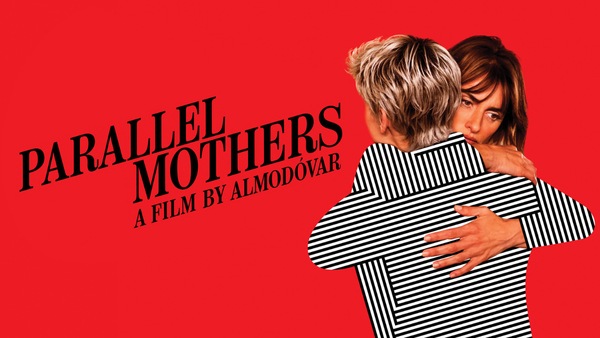
Last Updated: 10.53 AM, Jun 17, 2022
Story:
The lives of two expecting mothers are entangled when they meet in the maternity room of a hospital. What follows is an emotional rollercoaster that could only end fiercely.
Review:
Films about motherhood tend to border on hagiographies. Eternally painting the lead as the selfless, devoted, weary-yet-rarely-complaining pedantic parent. They’re one-dimensional portraits of individuals who can’t be bothered about much beyond providing for their offspring. Almodóvar’s All about my mother which astutely delivered the goods, springs to mind for furnishing the most compelling depiction of motherhood. But this one not only packs a gamut of intense emotions synonymous with maternity but also paves the way for a more complex exchange.
Contrary to the film’s title, the two mums in the film are hardly parallel. But then again, did you expect to walk into an Almodóvar film hoping the lives of those on-screen wouldn’t be mangled beyond repair? Occasionally a tad sappy, the 72-year-old filmmaker’s films have been an exploration in plot design and fluid narrative style which tends to sway without restrain, often stretching the limits of one’s imagination to realise ineffable possibilities.
In this film, when two expecting mothers, Janis (Penelope Cruz) and Ana (Milena Smit) share a maternity room, they cobble together enough common ground. The former’s a freelance photographer willfully opting for single motherhood, and her hospital roommate is a young woman who’s uncertain about the identity of her unborn child’s father and is presently living with her own mum. The two swap pleasantries and perhaps, a few words of motivation to get through the huffing and puffing before they’re both blessed with a child of their own. What follows may initially seem largely inevitable and perhaps, even a bit dull. But that’s until you’re introduced to the twist in the tale. Giving away the big reveal of this film would be unfair and utterly a spoiler but then again, the bite here isn’t about the unpredictable turn but how it’s processed and accepted by the characters.
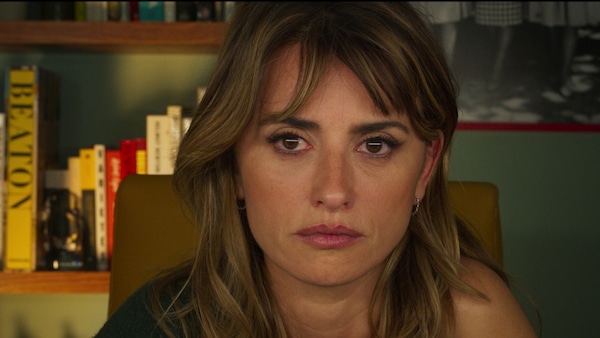
The several mothers in this film hold their own and often wordlessly convey how they’ve come to negotiate life. The 40-something Janis is carved as a hardened self-sufficient individual who’s affectionate and warm but also has a rational and practical head on her shoulders that keeps her from having expectations even from those she considers close. Ana, the barely 20-something who’s yet to find her feet or arrive at her particular role in the world has suddenly been inflicted with maternal instincts. Despite being on the cusp of adulthood, she’s matured almost as a consequence of her motherhood, observes her own mother. Ana’s mother, a struggling actor who has encountered sporadic success, pops up intermittently to care for her daughter but isn’t willing to sacrifice her scattered acting career to keep up with her granny duties. So in some ways, these three women don’t intersect in their particular approaches to life. But they share a common relentless streak and an empathetic fervour that often goes beyond reason or rationale.
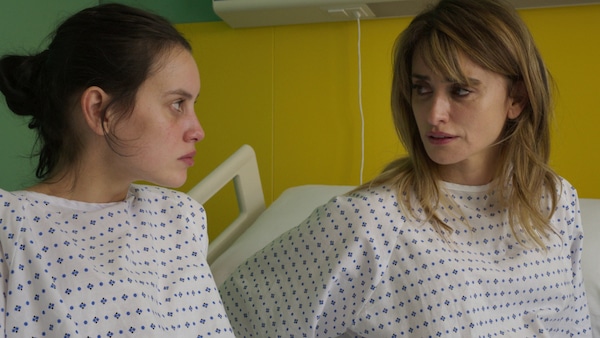
The film has a parallel track about excavating the remains of victims of the civil war. The dig reveals the remains of a father who was buried along with his infant daughter’s rattle and the final frame takes a poignant political stand. And this is furnished in the filmmaker’s style of cinematically capturing horrific events.
Cruz shines all the way here, as she has in previous collaborations with Almodóvar (Volver, Broken Embraces, Pain and Glory among others). Her ability to sink into her character’s distinguished position is immaculate and effortless.
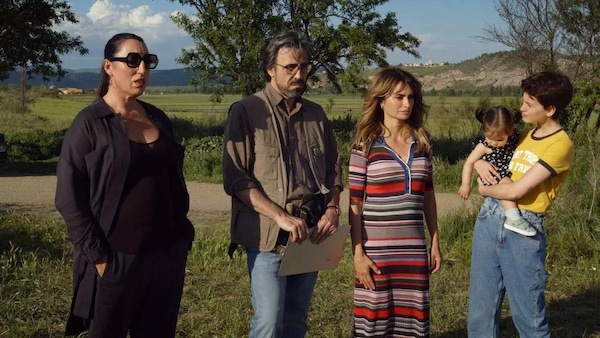
Those who haven’t followed the auteur’s seminal works (All About My Mother, Bad Education among others) should be informed about the maker’s distinct approach to storytelling which leans heavily on carving characters who’re conflicted by a singular situation. His ability to weave complex family dramas which may sometimes even introduce implausible plot points but still manage to draw the audience in so tightly that one can hardly entangle oneself from the situations presented. There’s much heartbreak, hurt, hope and horror. And we’re run through an array of emotions that those on screen are possibly meant to endure. But through the proceedings, there’s a silent calm that envelopes the film and that’s just what helps you sail through the turbulent proceedings, unscathed and hopeful.
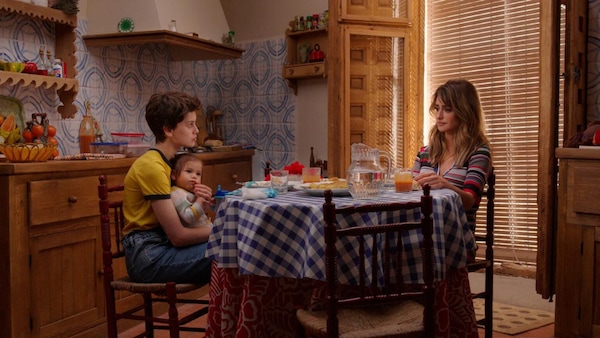
Like most of his filmography, even Parallel Mothers packs the maker’s signature punchy colour palette and closeups so tightly framed it may not be suitable for claustrophobics. Even signature shots of food and fluids being served on plates and poured into cups have been tossed in – almost to remind you at every turn that you’re watching an Almodóvar film.
Verdict:
Almodóvar’s films have forever excavated the misery in relationships but nudged the narrative in a manner that one is left hopeful if not entirely relieved by the time the story folds. Parallel Mothers is an ode to women with nerves of steel who’re not afraid to respond to their urges and strive to claim what they truly deserve.
WHERE
TO WATCH
Subscribe to our newsletter for top content, delivered fast.

